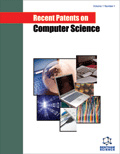Abstract
Multicast routing is an effective routing scheme for transmitting messages to multiple nodes. Such applications require multiple QoS guarantees to be satisfied. This paper presents genetic oriented QoS multicast routing (GA-QMR) algorithm.
Background: The topology of the ad-hoc networks may change rapidly due to mobility of the nodes that affect the routing paths. Wireless nodes in MANETs come with sparse resources such as limited power, limited memory and limited residual battery lifetime.
Objective: It is a challenging work to design QoS routing algorithm for MANETs. In order to select an optimal route from source to destination based on quality of service parameters, it needs to opt a choice from a set of routes.
Method: The routes are required to satisfy the end-to-end delay, jitter, packet loss rate, packet success rate, bandwidth etc.
Result: Simulation experiments are performed for 08 mobile to predict the proposed algorithm performance. The result retrieved as a part of investigations carried out in the proposed work, it is observed that optimal routes traced successfully and the proposed algorithm achieves the fast and guaranteed convergence.
Conclusion: The proposed algorithm is efficient to find optimal multicast tree satisfying multiple QoS parameters than other two algorithms. The algorithm has the ability to explore many paths at one time from a node and select the best one based on the quality of parameters and can achieve global convergence.
Keywords: Genetic Algorithm (GA), Quality of Service (QoS), network, multicast routing, optimization, MANET.
Graphical Abstract
 12
12 2
2 1
1



















